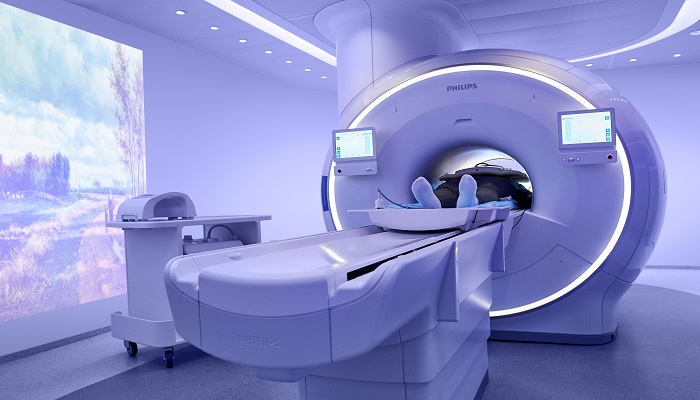Royal Philips, a global leader in health technology, and leading Portuguese translational biomedical research and clinical care provider Champalimaud Foundation, has announced they have signed a strategic partnership aimed at halving the carbon footprint resulting from Champalimaud’s use of diagnostic and interventional imaging equipment by 2028.
The transformation of Champalimaud Foundation’s imaging technology infrastructure will be enabled by a set of practical, scalable measures and innovations, including equipment upgrades, lifetime extensions, process digitalization, circular financing solutions with takeback, and renewable electricity sourcing. It will help drive the quality and efficiency of care delivery, while also realizing more sustainable healthcare. As a result, many more patients are expected to be able to benefit from the hospital’s diagnostic healthcare services.
Global healthcare systems account for 4.4% of global CO₂ emissions – more than aviation or the shipping industry [2]. The cooperation between Champalimaud Foundation and Philips is based on a shared commitment to help mitigate climate change – building on Philips’ acknowledged expertise as a health technology company that is driving systemic change towards more sustainable and equitable patient care through the application of EcoDesign (embedding sustainability into the innovation process), circular economy principles, renewable energy sourcing, and workflow improvement through digitalization.
After conducting a baseline assessment of Champalimaud Foundation’s current CO₂ emissions, Philips will work with the organization to update and renew its diagnostic imaging technology capabilities, keeping it up-to-date with Philips’ latest innovations in diagnostic imaging such as CT and MR systems, while also reducing resource demand, increasing the use of recycled materials, and extending equipment lifespans. As a result, Champalimaud Foundation’s patients and staff will be able to enjoy the outcome benefits of advanced diagnostic imaging coupled with improved patient and staff experiences and more sustainable healthcare delivery.
“This partnership will allow us to continue to ensure the best care for our patients while at the same time helping to reduce the healthcare sector’s environmental impact.”- Leonor Beleza,President of the Champalimaud Foundation
“The healthcare sector is a significant contributor to CO₂ emissions and therefore has an important role to play in mitigating climate change,” said Leonor Beleza, President of the Champalimaud Foundation. “This partnership will allow us to continue to ensure the best care for our patients while at the same time helping to reduce the healthcare sector’s environmental impact.”
“Alongside improving patient outcomes and increasing efficiency, healthcare providers are increasingly focusing on mitigating their impact on the climate and making more sustainable choices,” said Peter Vullinghs, Market Leader Western Europe for Philips. “We have a strong track record in embedding sustainability in our solutions, our operations, and across our supply chain. Leveraging that deep expertise, we are partnering with the Champalimaud Foundation to make a step-change in their environmental impact, while enabling them to pursue their goal of advancing the prevention, early diagnosis and treatment of cancer.”
Philips will support Champalimaud Foundation’s sustainability targets through a range of health technologies and innovations designed to reduce the foundation’s dependency on natural resources and energy consumption. This includes the installation of Philips Spectral CT 7500 which uses 62.5% less energy. The installation of Philips’ MR helium-free operations’ system, Philips MR – Ingenia Ambition 1.5T that uses a breakthrough design where the magnetic components are completely sealed and only need seven liters of helium over its lifetime compared to roughly 1,500 liters with other Philips’s systems. Additionally, with Philips MR SmartSpeed, the Ingenia Ambition 1.5T uses up to 53% less power per patient scan.
Philips will also take back the currently-installed Philips equipment and ensure responsible end-of-use management, to avoid waste going to landfill. In addition, Philips will help the Champalimaud Foundation implement hybrid operating room solutions, providing its specialists with a wide range of image-guided minimally-invasive interventional procedures with enhanced precision and patient safety, resulting in shorter hospitalization compared to traditional surgical interventions.
Source: Philips


